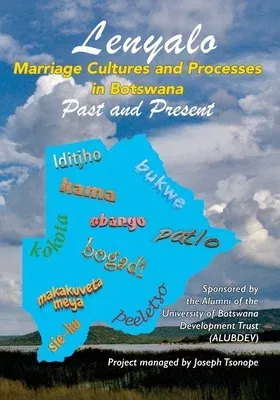This research sought to find out the commonalities and variations in
lenyalo marriage culture and practices in past and present Botswana. It
was hoped that the research would culminate in an elaborate account of
the series of stages, events as well as processes, which would be a
reference point for Botswana's evolving society, and perhaps a rallying
point for convergences and the finding resolutions to some of the
problems that are seen as being associated with marriage in today's
society.
This book attempts to cover the formal lenyalo processes as can be
recounted, though perhaps not always as comprehensively as desired, on
the issues that follow: courtship stages (go kokota/go itshupa);
bride-seeking (patlo); lobola (bogadi); bride and groom counselling (go
laya); the wedding ceremony (kemo/mokete wa lenyalo); the transfer of a
bride to her in-laws; (go isa monyadiwa); and the bride being taken back
to her natal home (go gatisiwa). In the course of recounting these
events, these marriage rites, the significance of metaphorical language
and symbolic actions are discussed. The rights, privileges and benefits
associated with traditional marriage practices are brought into focus.
Roles of maternal, as opposed to paternal, uncles and aunts are
discussed. Problems and challenges that are prevalent in Botswana
marriages, as well as possible remedies and standardization of the
practices. are also discussed. The book also highlights significant
factors of change as well as their impact on traditional marriage rites
and processes.


